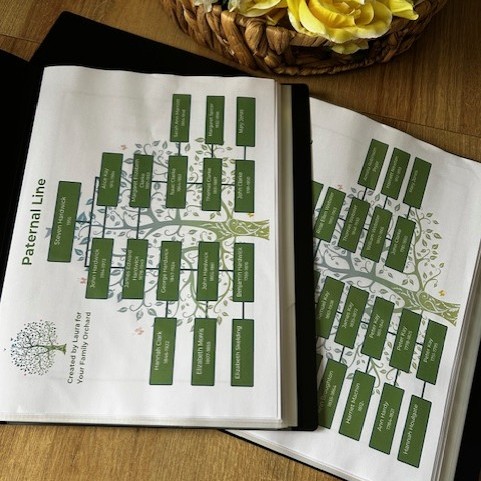The 12 Golden Rules of Genealogy Every Family Historian Should Know
Discover the 12 Golden Rules of Genealogy to improve your family history research. Learn how to verify records, document sources, use DNA wisely, and preserve your ancestor stories.
9/19/20252 min read
Genealogy is one of the most rewarding hobbies you can pursue. Tracing your family history helps you understand where you come from, preserve your heritage, and pass along stories to the next generation.
But successful family history research requires strategy. These 12 Golden Rules of Genealogy will guide you in separating fact from myth, avoiding common mistakes, and leaving behind a reliable legacy.
1. Spelling Doesn’t Count in Genealogy
When searching family records, don’t let spelling variations stop you. Many ancestors couldn’t read or write, so their names were spelled phonetically. Use wildcard searches and Soundex tools when researching names. This will help uncover records you might otherwise miss.
2. Don’t Assume Anything in Family History Research
Never assume that one record tells the full story. Census takers made mistakes, dates were often misremembered, and names changed over time. Always cross-check multiple sources before accepting a fact as true.
3. Use Discretion When Sharing Family Information
Be careful when reporting sensitive details, especially about living relatives. Privacy matters—use discretion when publishing information online or in family history books.
4. Always Document Your Sources
One of the most important genealogy tips: cite your sources. Even if they contradict one another, document everything. Conflicting evidence often helps solve mysteries. Use a consistent format for citations so your work is easy to follow.
5. Most Dates Are Approximate in Genealogy
Exact dates are rare in older records. It’s perfectly acceptable to record “abt. 1845” for a birth year or “d. May 1915” for a death date if documents don’t agree.
Remember: even approximate dates add valuable context to your family history.
6. If Unsure, Say So
Honesty builds trust in genealogy research. Instead of making assumptions, mark uncertain facts clearly. Future researchers will thank you for distinguishing between what’s proven and what’s only possible.
7. You Cannot Do All Genealogy Research Online
Online genealogy databases are powerful, but they don’t contain everything. Some of the best resources remain offline in:
Local courthouses ⚖️
Archives 🗃️
Libraries 📚
Historical societies 🏛️
The most valuable discoveries often come from combining online and offline research.
8. Verify Online Genealogy Information Before Using It
Just because it’s online doesn’t mean it’s true. Many family trees and genealogy websites contain errors that spread quickly. Always trace back to original records before accepting information.
9. Pass Along Your Research
Don’t let decades of work disappear. Organize and preserve your family history so it can be passed down. Consider writing a family history book, creating a digital archive, or donating research to a local historical society.
10. Tell Your Family Stories Before It’s Too Late
Genealogy isn’t just about dates and documents—it’s about stories. Don’t let your memories, traditions, and life lessons be lost. Write them down, record them, or share them with younger family members.
11. DNA Is a Genealogy Tool, Not the Whole Picture
DNA testing is a powerful way to verify or disprove relationships, but it’s only one part of the puzzle. Combine DNA results with traditional records for the most accurate family history.
12. Be Prepared: Anything You Post Online Will Be Shared
Once you post your genealogy research online, it may be copied or “borrowed” by others—sometimes without credit. While this can be frustrating, it also means your hard work is helping others uncover their roots.
Final Thoughts on the Golden Rules of Genealogy
Following these 12 genealogy tips will make your research stronger, more accurate, and more meaningful. Genealogy is more than just building a family tree—it’s about telling the stories of those who came before us.
Remember: preserve your research, cite your sources, and above all, share your family’s story with future generations.


